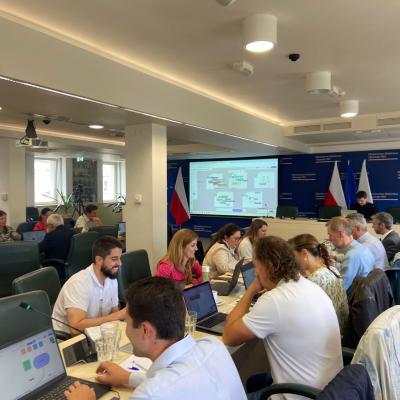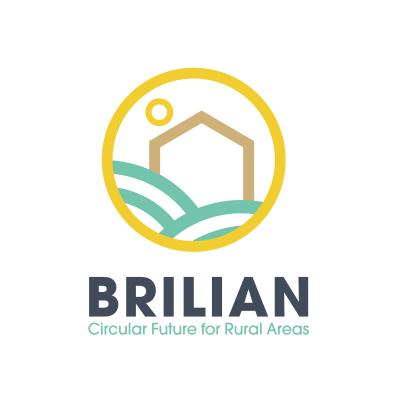
CBE JU has officially launched its Working group on primary producers, a three-year initiative to ensure that farmers, foresters, fishers and aquaculture producers can actively shape innovative circular bio-based systems and benefit from their involvement in them.
The group was formally constituted during its inaugural meeting in Warsaw, Poland, held as a side event to the SCAR/BIOEAST conference on research and innovation, organised under the Polish EU presidency. The meeting brought together 64 representatives from across Europe’s primary sectors, marking the start of a collaborative effort to strengthen the role of primary producers in Europe’s growing bioeconomy.
Creating a platform for action and engagement
The working group on primary producers is conceived as an action group tasked with identifying challenges and proposing specific, practical solutions that can unlock opportunities for agricultural, forestry, fisheries, and aquaculture producers. Its core mission is to ensure these sectors are not only included but actively benefit from new and emerging circular bio-based value chains.
During the kick-off meeting in Warsaw, participants:
- Discussed the overall objectives and upcoming activities of the group
- Established governance and working procedures
- Elected a steering group to guide the preparation of the first action plan
- Networked with fellow members to share experiences and align on common goals
Bringing primary producers on board the bio-based economy
Europe’s shift toward a circular bio-based economy will only succeed if the actors who produce, manage and harvest biomass are meaningfully involved. Primary producers are key to this objective; however they remain underrepresented in industrial value chains. This is why CBE JU is stepping up its efforts to mobilise the primary sector.
Since 2022, about €185 million of CBE JU funding has been directed toward bio-based solutions that support sustainable agricultural practices and boost rural economies. As a result, 76 entities from the primary sector are currently involved in CBE JU-funded projects, contributing to the transformation of primary sector outputs into high-value bio-based chemicals and materials.
Primary producers are at the heart of Europe’s bio-based economy: without their knowledge, resources and commitment, circular value chains cannot thrive. Through this new working group, CBE JU is bringing farmers, foresters, fishers and aquaculture producers to the table, helping ensure they are not only involved but also share in the benefits of Europe’s green transition.
Nicoló Giacomuzzi-Moore, CBE JU Executive Director
CBE JU projects use a wide variety of feedstocks linked to agricultural, forestry and marine ecosystems. Agriculture-based biomass, including residues and byproducts from the agricultural sector represent the majority. Other feedstock types include forest-based materials (e.g., lignocellulosic side streams, wood residues), aquatic feedstocks (e.g., biomass from fisheries and aquaculture) and industrial sidestreams such as black liquor from pulp and paper production, dairy processing residues, and biowaste. In total, these feedstocks account for around 90% of those used in CBE JU projects.
Despite this significant reliance on renewable biological resources, primary producers often remain marginally integrated in these value chains. CBE JU is working to reduce this gap by supporting direct engagement and inclusive business models. Since 2022, 70 organisations from the primary sector - including 51 farmers - have received €7.46 million in CBE JU funding. Farmers now represent 73% of primary sector participants, with 40% involved directly as project beneficiaries and 60% participating indirectly.
This approach aligns with the CBE JU Strategic Research and Innovation Agenda (SRIA), which highlights the need to:
- Engage and integrate primary producers into sustainable, circular bio-based value chains
- Improve their involvement to ensure feedstock quality and fair revenue
- Revitalise rural, coastal and peripheral regions by deploying inclusive and locally adapted bio-based solutions
60% of primary producers involved in CBE JU projects have participated in innovation actions, including flagship initiatives, with the remaining 40% engaged in research and coordination activities (20% in research and innovation actions and 20% in coordination and support actions). This strong presence highlights the growing role of primary producers in driving bio-based innovation. Several ongoing projects already showcase the benefits of their deeper integration.
For example:
- The AFTERBIOCHEM flagship in France, is building the EU’s first biorefinery for converting sugar beet side streams into bio-based molecules for a variety of sectors ranging from pharmaceuticals to packaging. The project increases the sustainability of the sugar beet industry, supports thousands of farmers, and offers a flexible model for future feedstocks.
- Another flagship, SUSTAINEXT is transforming an existing production plant in Extremadura, Spain, into a digitalised circular biorefinery to produce healthy plant extracts and ingredients from crops like rosemary and chamomile, all powered by renewable energy. The project is set to create economic opportunities and employment in the region and its model is both adaptable and replicable.
- BRILIAN helps rural areas adopt cooperative business models that valorise agricultural by-products and diversify farmers income.
- BIOVEXO targets the Xylella fastidiosa bacteria with environmentally destroying European olive trees friendly biopesticides whilst preserving the ecosystem of the orchards in Southern Europe.
- ROBOCOOP-EU builds circular regional value chains using waste in grape, olive and stone fruit cultivation across Spain, Italy and Greece.
- MANUREFINERY transforms livestock manure into bio -based feed and fertilisers, helping reduce environmental impact and create new income streams in Romania, Slovenia and Spain.
Unlocking regional bio-based potential
The working group also plays a strategic role in mobilising feedstock providers from regions with unexploited potential, aiming to support the development of inclusive and competitive bio-based value chains across Europe. By enhancing cooperation between primary sectors and industry, the group will contribute to unlock new economic opportunities while advancing EU sustainability and circularity goals.
The initiative is supported by the RootLinks project, a coordination and support action, which will provide dedicated assistance throughout the group’s three-year mandate. RootLinks will help coordinate activities, support communication between members, and translate shared ideas into actionable outcomes.
CBE JU’s dedicated efforts to bring primary producers into the heart of the bioeconomy marks a crucial step toward building more inclusive, resilient, and sustainable value chains across Europe. By strengthening their role through funding, collaboration, and the newly launched working group, CBE JU is not only unlocking the untapped potential of rural, coastal, and peripheral regions, but also ensuring that those who manage Europe’s natural resources are fully equipped to contribute to the future of the bio-based sector.






